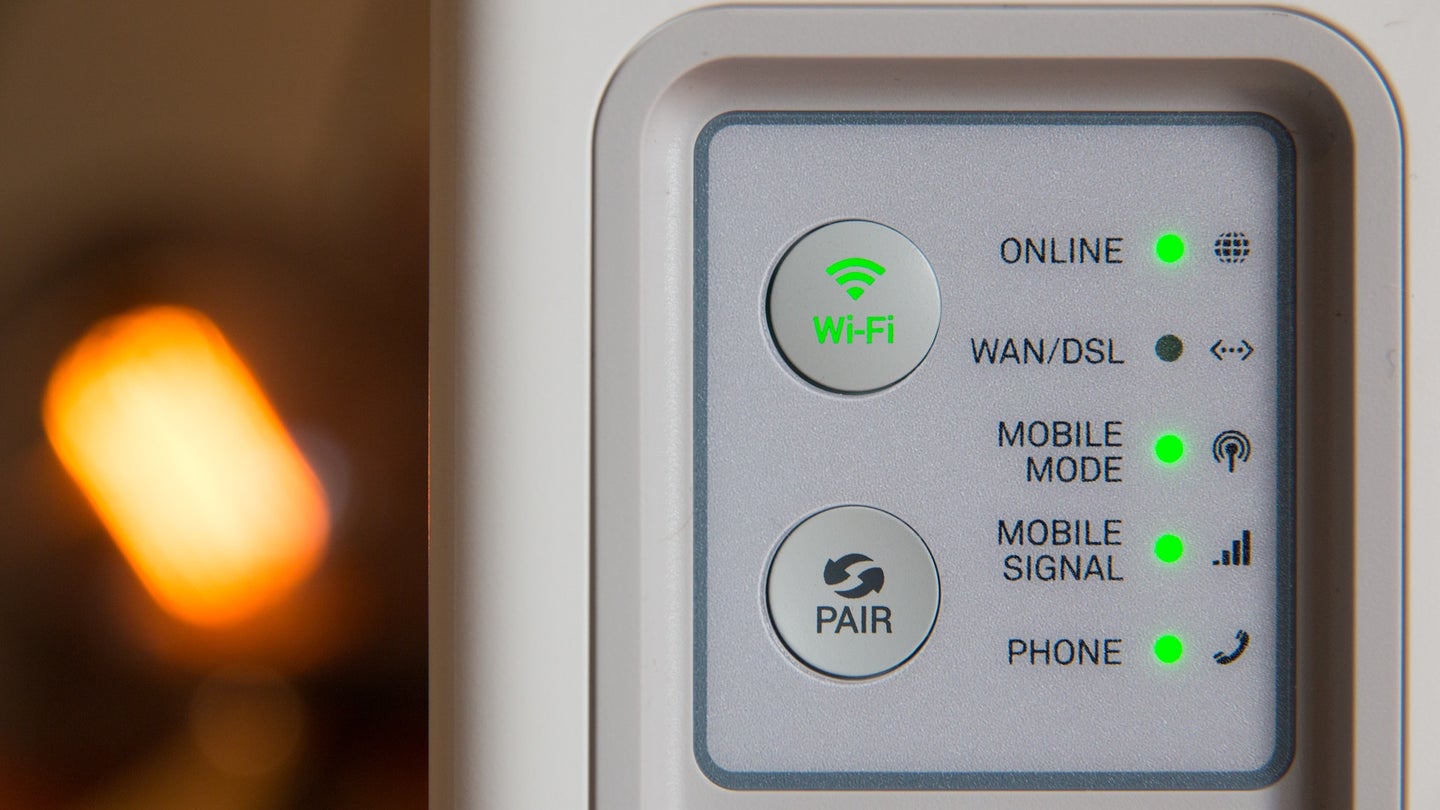
A router is technically a device for directing packets of data between two or more computer networks, but it’s also shorthand for the piece of tech you’re probably thinking about right now: your home WiFi router.
A normal WiFi router creates a local area network (LAN) in your home that allows your computers, smartphones, and other devices to connect to your internet service provider’s, or ISP’s, network—enabling access to the open internet. A router is essential if you want multiple devices in your home to access the web.
What does a router do?
A WiFi router works like a post office. It takes packets of data from your devices and directs them to your ISP’s network (where more routers can send them to their final destination). Most importantly, WiFi routers allow a number of devices to share the same internet connection.
For example, let’s assume you are reading this article on your smartphone on your home WiFi network. When you tapped the link to this article, your smartphone sent a series of data packets to your WiFi router requesting the contents of this article, which it then forwarded to your ISP’s network, and on to whatever server PopSci is hosted on. That server then sent the contents of this article back along much the same path to your WiFi router, which neatly handed it back to your smartphone.
Do I need a WiFi router?
If you want to connect more than one device to the internet in your home or place of business, then yes, you need a WiFi router. It’s the best way to create a WiFi network that will allow all your devices to go online at the same time.
[Related: Device won’t connect to WiFi? Here’s what to do first.]
Most WiFi routers are also wired routers. They normally have multiple Ethernet ports so you can connect devices that don’t have WiFi capabilities, or if you want to directly access the high-speed, reliable connection that an Ethernet cable provides.
While you probably need a WiFi router, you might not need to buy one. When you sign up for an internet plan, most ISPs will send you both a modem, which allows you to connect to the internet, and a router, which creates a LAN for all your devices—though the two devices may be combined into one.
What is the difference between a router and a modem?
Although your ISP may combine both a router and a modem into a single device, the two serve different purposes.
As we’ve discussed, a router creates a LAN and manages data on it. A modem connects your router to your ISP so you can actually browse the internet.
If you have a router, but no modem, you will be able to create a LAN and send data between your devices. (This is how people used to play multiplayer games with their friends before online gaming.) You just won’t be able to connect to the open internet.
Now, if you have a modem, but no router, you will be able to connect one device to the internet at a time via an Ethernet cable, but you won’t have a WiFi network for multiple devices to connect to.
Are there advantages to getting your own router?
While the routers provided by ISPs will do the job, if you want the best WiFi router you can get, you will likely have to buy one yourself. There are a number of advantages to upgrading your WiFi router:
- Better WiFi routers will support newer versions of the WiFi standard, which allow for faster network speeds and a more stable connection for more devices. For example, the best WiFi 6 routers support gigabit WiFi speeds.
- Mesh routers will allow you to create a single WiFi network with multiple routers, allowing you to cover your whole home with a solid WiFi signal.
- Most ISP routers aren’t optimized for online gaming. If you want to get the best gaming performance you can over WiFi, you should consider a dedicated gaming router.
Of course, if you just want to connect a smartphone or two to the internet, then any router will do. Just make sure to update your router security settings to keep your browsing safe and secure.
The post What is a router? It’s like your WiFi’s post office. appeared first on Popular Science.
Articles may contain affiliate links which enable us to share in the revenue of any purchases made.
from | Popular Science https://ift.tt/5eKYCno



0 Comments